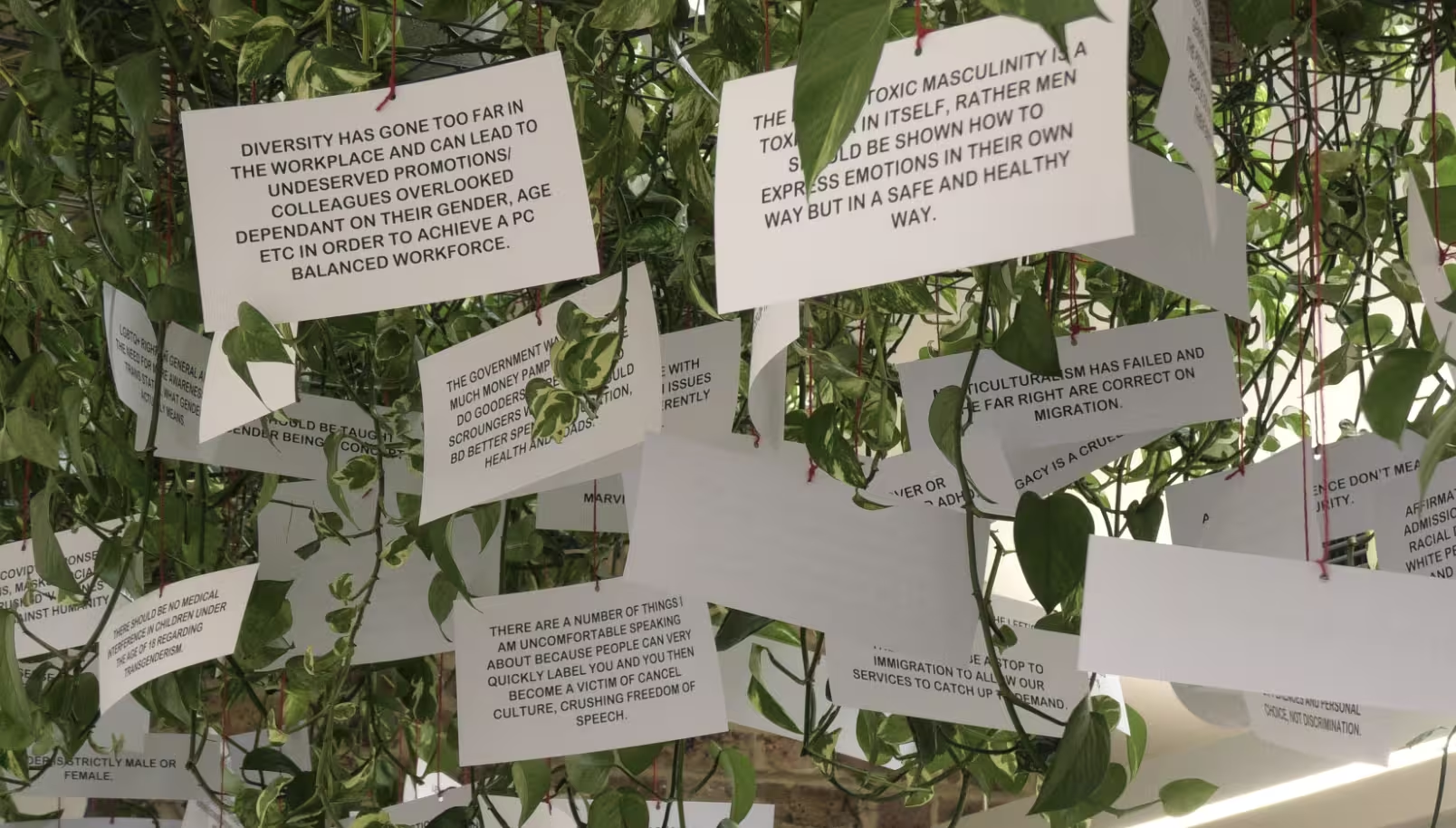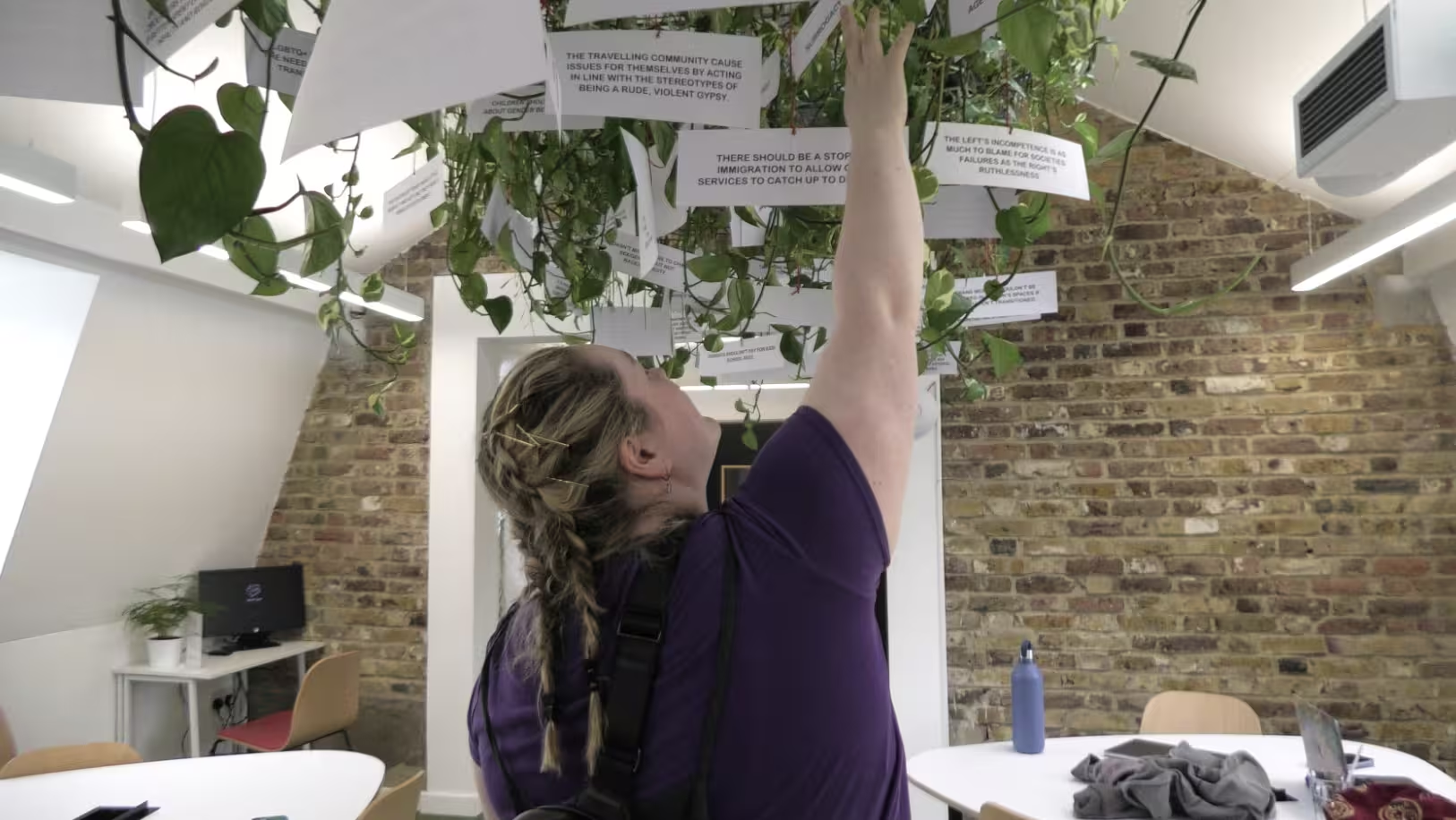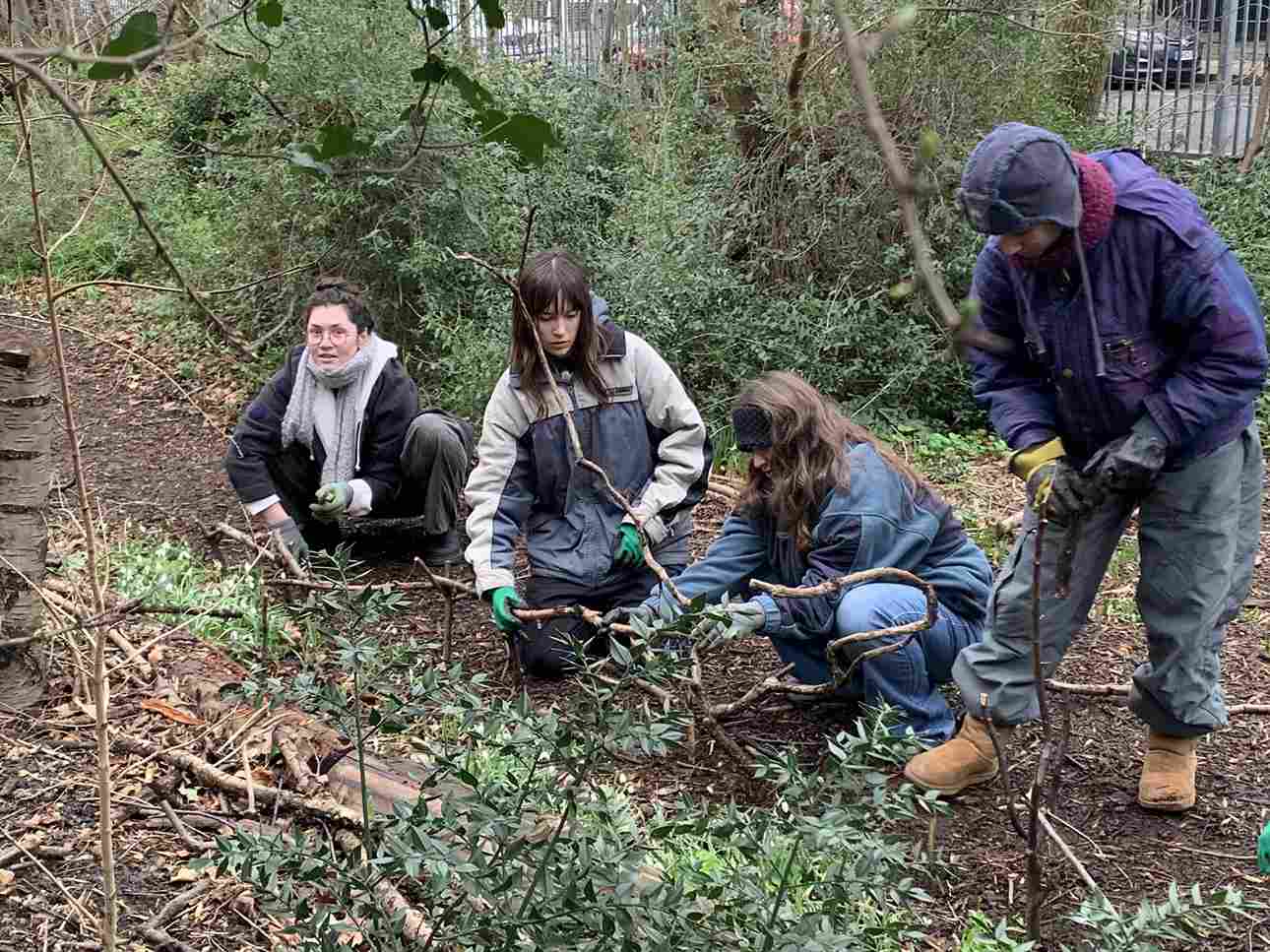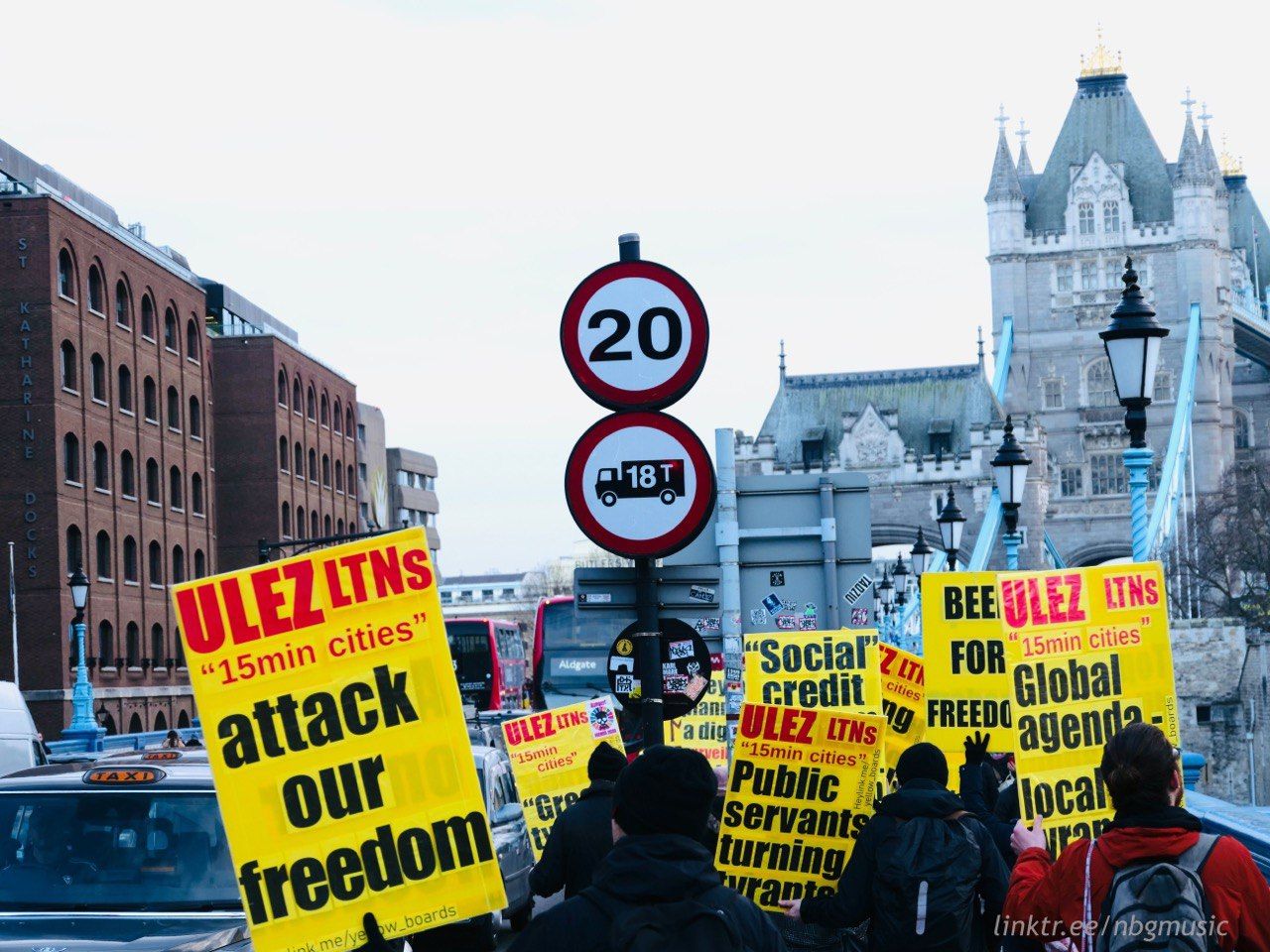
Socio-Political Impacts of Political Correctness

Summary
My project addresses the tension between "political correctness" and "freedom of speech," with the former seen as a constraint on the latter. It explores public perceptions of free speech on controversial issues and gathers insights from academics who have faced political correctness first-hand.
Defined here, political correctness involves conforming to liberal norms to avoid offending political sensibilities, while freedom of speech entails expressing opinions without fear of repercussion. This issue is prominent in current events like the Israel-Palestine conflict and the UK Rwanda migration plan, and is increasingly felt in academia, with 34% of students reporting threats to free speech in their institutions. Furthermore, despite the Human Rights Act of 1998 guaranteeing free expression, 57% of adults at least sometimes refrain from sharing political opinions due to fear of repercussions.
Approach and Methodology
I began with the problem area of freedom of speech, as it was particularly relevant in my personal life at the time. I then undertook long-form, qualitative interviews with academics who have faced controversy, alongside quantitative analysis of YouGov survey data on cancel culture.
I hypothesised that conservative voters and 50-64s will show more discomfort discussing controversial topics than Labour voters and 18-25s. This mixed-method approach illuminated both personal and general perspectives on this critical issue.
Proposal/Outcome
Interviewing both participants provided unique and rich insights into the impacts of political correctness, including the direct threat it poses to free speech and the fear it perpetuates. Furthermore, an overarching take away was that of the negative consequences it has in the academic domain and the potential hinderance it could cause to research and societal development.
Using the chi-square test of independence to test eight hypotheses regarding the perceptions of political correctness and freedom of speech for different age and voter demographics has provided rich and interesting insights into political correctness and freedom of speech in wider society. Of the four tests performed to investigate the differences in perceptions on the issues among different political affiliations – Labour and Conservative – three of these resulted in sufficient evidence to reject the null hypotheses and helped evidence my initial theory that this factor would be significant. This highlights a divide in society which needs addressing, prompting further investigation and the necessity for more studies to be conducted in order to better understand the correlation between political affiliation and freedom of speech.
My final output was titled 'Social Suicide' . It is a visual commentary on the effects of political correctness in society. The piece shows over a 100 opinions gathered through an anonymous survey of members of the public who were asked to express views they would not feel comfortable expressing in their places of work, education or social circles.
Beyond Outcomes
I am most proud of the discussions and debates my project has sparked. It has challenged people’s ideas and comfort zones and I strongly advocate for this to be encouraged and fostered in all university institutions.
Want to learn more about this project?




Overall LIS Journey
About me

My name is Maddie Winchester, and I am a first year student at the London Interdisciplinary School. The disciplines which I am passionate about include politics, philosophy, linguistics, sociology and literature. This translates into my aspiration to work in public policy, and one day to help to change the world for the better. I advocate strongly for freedom of speech, and hope to further investigate this issue throughout my time at LIS.
In my free time, I enjoy going to concerts, watching plays, musicals and movies, reading, and socialising. I work part-time in a busy pub, and will be undergoing an internship with Fidelity International this summer.
.svg)
Other Related Projects
Back to the repository


- A Pilot Based on Heathrow's Sustainability Goals







